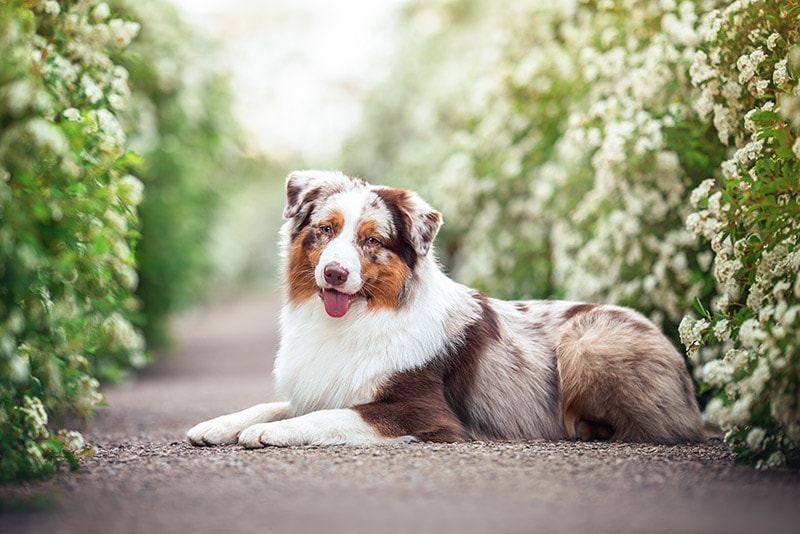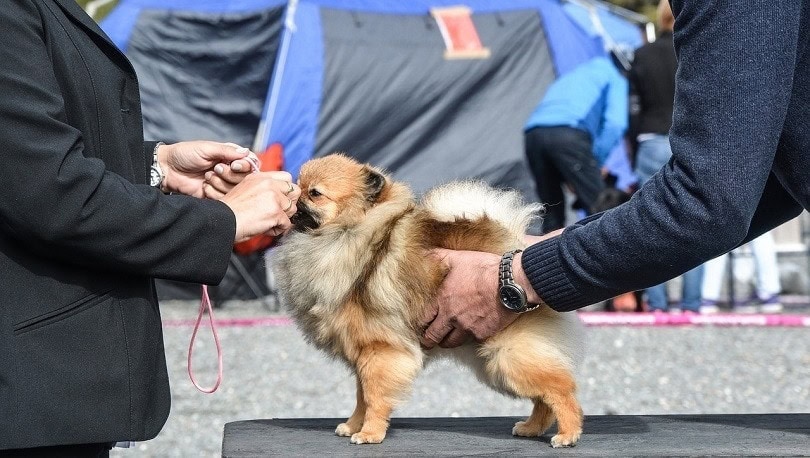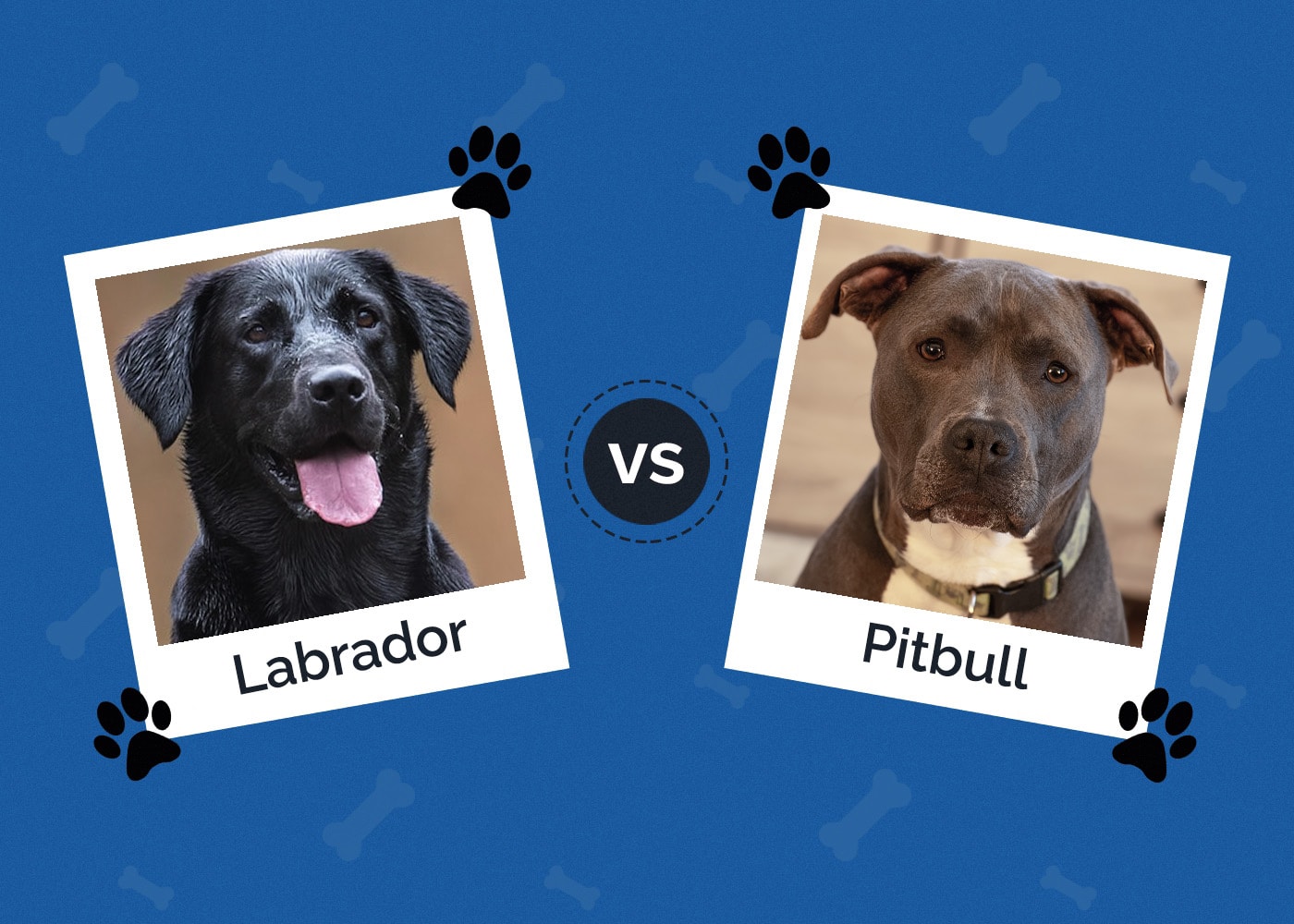Bichon Frise vs. Poodle: The Key Differences (With Pictures)
Updated on
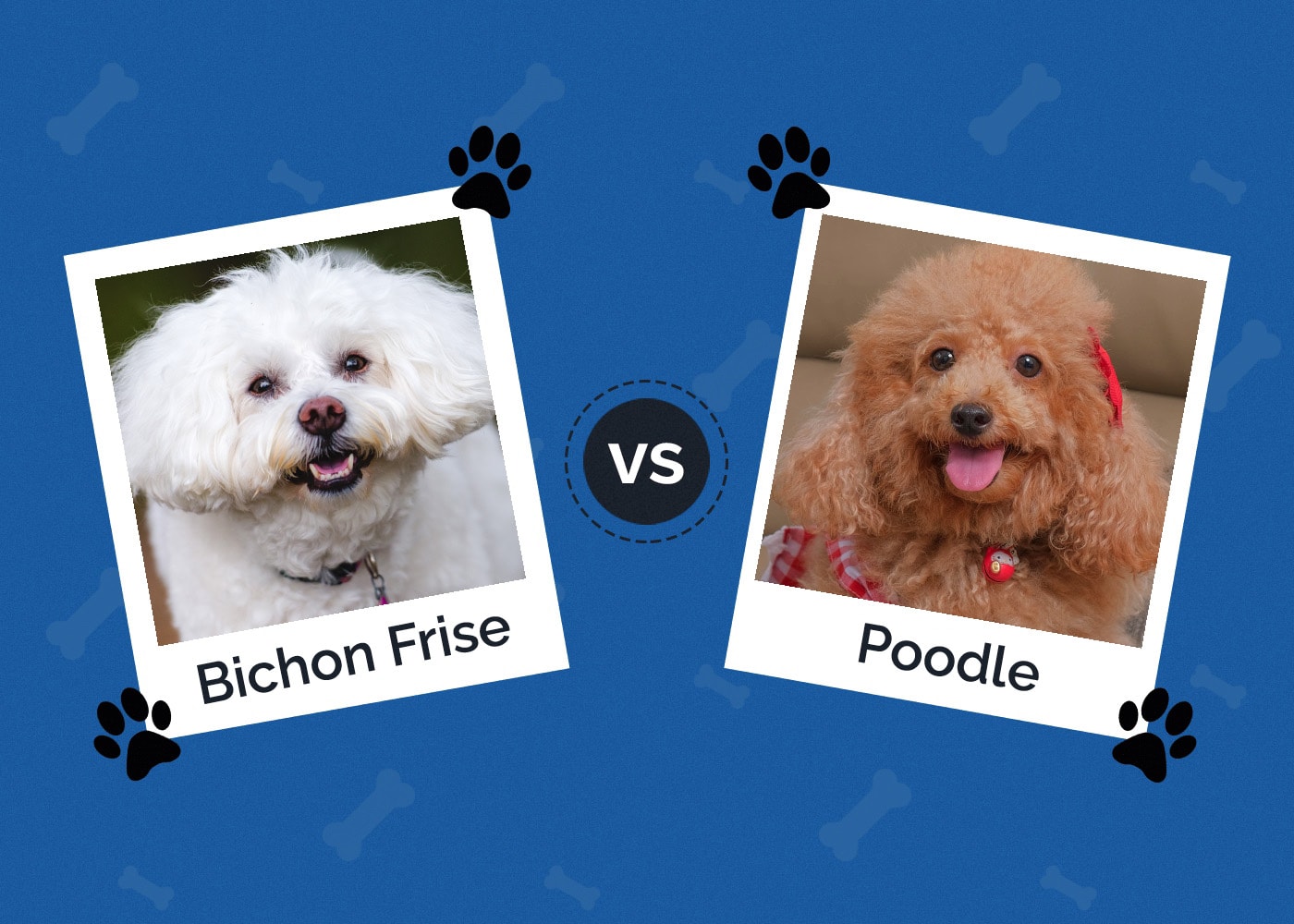
The Bichon Frise and Poodle have similar personalities and traits, but there are differences between the two. One difference is the size. The Bichon Frise is a small dog, while Poodles come in miniature, toy, and standard sizes. Both are intelligent, easy to train, sociable, playful, and love attention. They both have curly coats that require regular grooming, and they both do well with children and other pets.
If you’ve contemplated between the two breeds, you’ve landed on a spot that will explain the characteristics of both breeds to help you decide which one will work for you. Let’s dive in.
Visual Differences
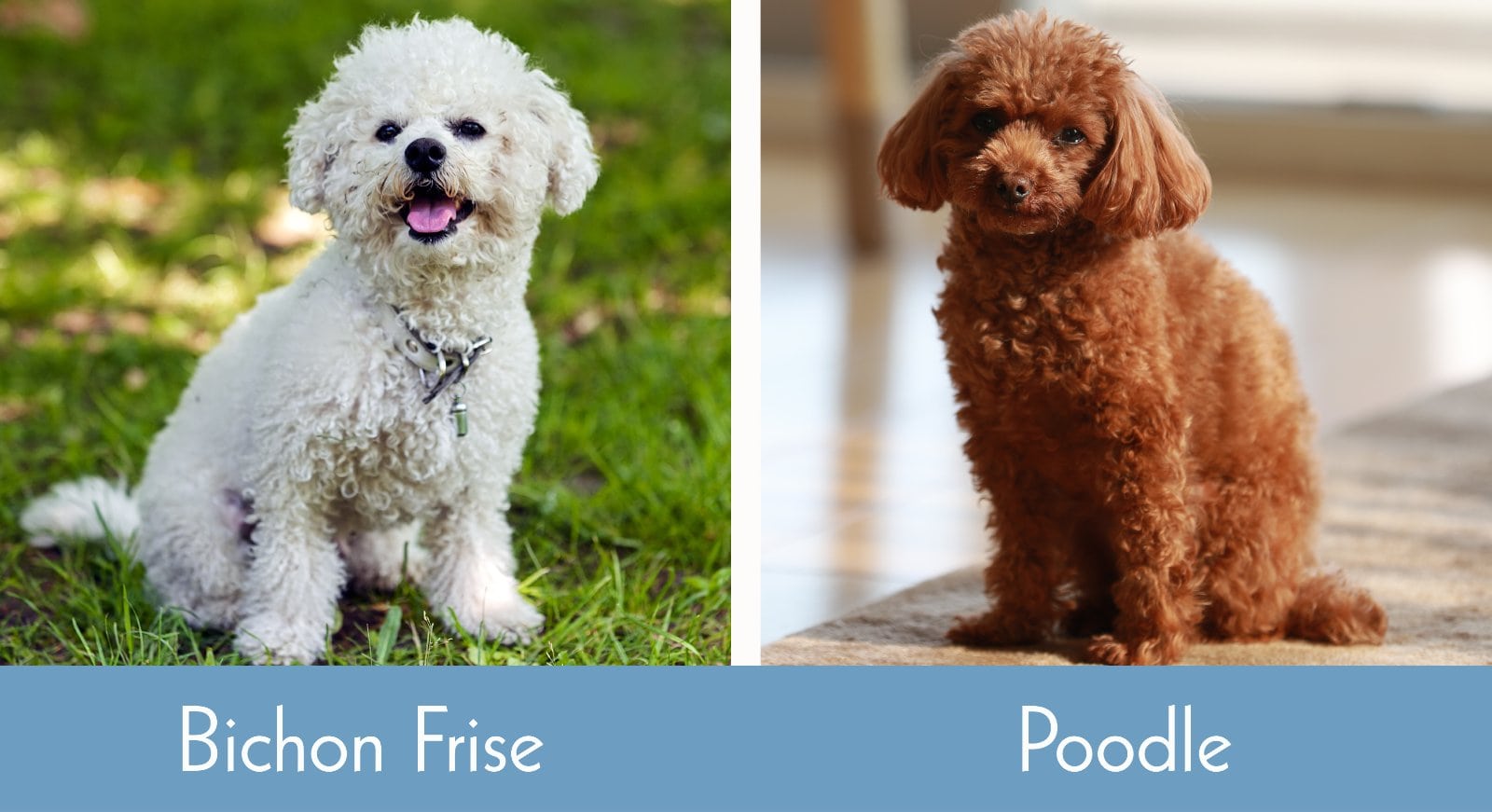
At a Glance
- Average height (adult): 9½–11½ inches
- Average weight (adult): 12–18 pounds
- Lifespan: 14–15 years
- Exercise: 30 minutes to 1 hour a day
- Grooming needs: Moderate
- Family-friendly: Yes
- Other pet-friendly: Often
- Trainability: Intelligent, loyal, fast learners
- Average height (standard): 15 inches
- Average weight (standard male): 60–70 pounds,
- Average weight (standard female): 40–50 pounds
- Lifespan: 10–18 years
- Exercise: 1 hour a day split into 30-minute sessions
- Grooming needs: Moderate
- Family-friendly: Yes
- Other pet-friendly: Yes, with early socialization
- Trainability: Intelligent, easy to train, eager to please
Bichon Frise Overview
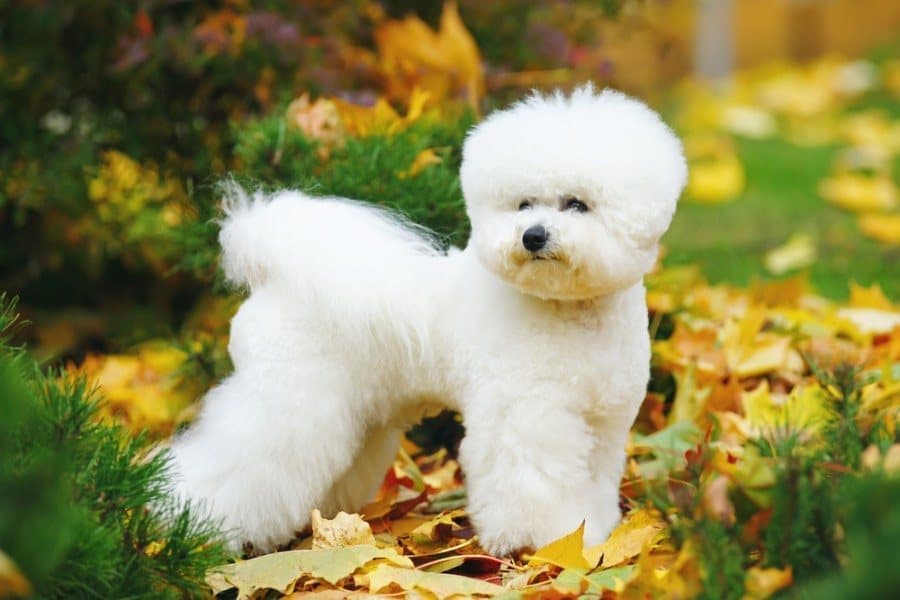
The Bichon Frise is a small dog with a big personality. Reaching only 12–18 pounds, these dogs are suitable for families with children and are eager to please. They love to be with their humans and have playful and curious personalities. They get along well with other pets and are easy to train. The Bichon Frise likes to “show off” its tricks, making them a comical little dog to have around. They require roughly two 30-minute play sessions and will eagerly take a nap in your lap afterward.
Personality / Character
The Bichon Frise is a happy-go-lucky breed. They are affectionate, sensitive, and love to cuddle with their humans. Beware that this breed may bark if left alone, especially for long periods. They are vivacious and love to show off any skills and tricks they know, especially with strangers. This breed is full of charm, and living with a Bichon Frise is amusing and rewarding.
Training
We’ve already established that the Bichon Frise is easy to train due to its intelligence, but what is the best training method for these little dogs? The short answer is consistency and patience. For house training, take your Bichon Frise outside immediately to potty after eating. After they go potty, reward them with a treat.
For a Bichon Frise puppy, biting may be an issue initially. Puppies go through the teething phase and will nibble and bite; while this may be cute, you’ll want to break that habit. Distracting your Bichon Frise with a toy is a good way to deter the behavior. Excessive barking is a trait prone to the Bichon Frise. They make good watchdogs but are really lovers rather than fighters. Try and keep mental stimulation at the forefront to prevent unnecessary barking by providing puzzles and games.
All in all, the Bichon Frise is easy to train, but ensure you use positive reinforcement. This breed also excels in agility training, which provides an excellent form of exercise.
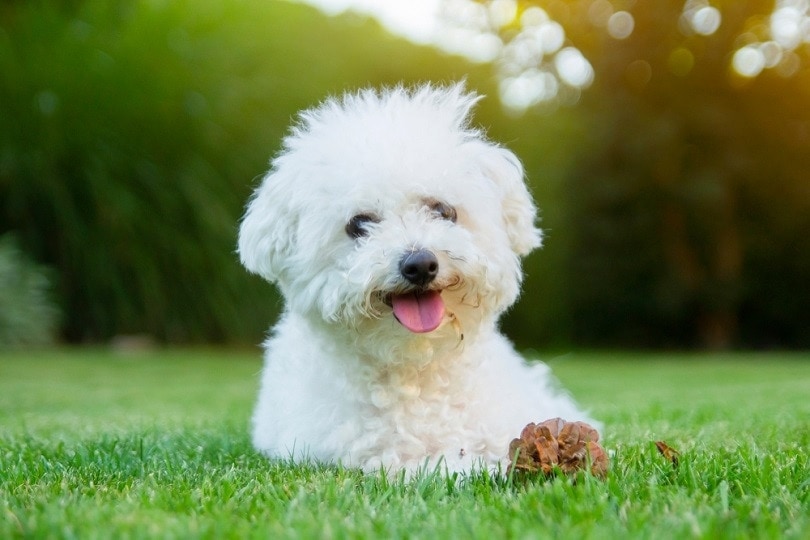
Health & Care
The Bichon Frise is an overall healthy breed, but they are prone to certain medical conditions to watch out for, such as patellar luxation, allergies, hip dysplasia, liver disease, and Cushing’s disease.1 It’s not to say a Bichon Frise will develop any of these conditions, but it’s good to know with the breed.
Their round, fluffy white heads are distinctive to this breed, and the coat is considered hypoallergenic because they shed minimally. They do require brushings two to three times per week to prevent a matted coat, and regular grooming is essential. A professional groomer can clip the nails, which will need clipping when they get too long. Clean the ears regularly to prevent ear infections.
Suitable for:
These dogs are suitable for families with children, families with other pets, and apartment living. If you’re a homeowner, a fenced yard is advised so your Bichon Frise can romp and play without escaping. This breed is ideal for novice pet owners who are home often, as this breed is prone to separation anxiety.
Nutrition
Always feed your Bichon Frise a well-balanced diet with high-quality ingredients. Ensure the first ingredient is a high-quality protein, as protein is essential for muscle growth and bone development. Avoid foods with artificial flavors and preservatives and watch out for by-products. The food should be complete and balanced and contain protein, omega fatty acids, and fruits and vegetables.
Poodle Overview
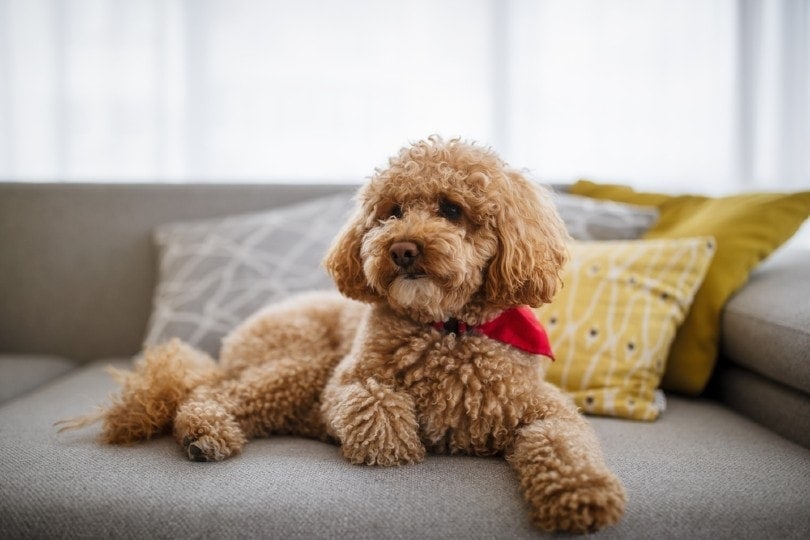
The Poodle comes in three sizes: toy, miniature, and standard. Poodles are graceful, intelligent, and easy to train. This breed excels in water retrieving, and they also are avid hunters. Poodles are considered one of the most intelligent dog breeds, and you can’t go wrong with owning one. These dogs often win Best-in-show contests and sport an array of elegance.
They do very well with children and other pets, particularly another Poodle. This breed does not need a canine companion but can get along well with another dog. Usually, all the Poodle needs is human companionship, but they are friendly dogs that will befriend another dog in the home with no problem.
Personality / Character
Poodles are people and family oriented. They are loving and loyal and make excellent companions. Miniature and toy poodles may not be so quick to welcome strangers or other pets, making early socialization important. Standard Poodles are hunting dogs with natural, instinctual behavior. They are full of energy and require mental stimulation. They are often trained as service dogs, watchdogs, and therapy animals.
Exercise
Poodles of all sizes are an energetic breed with natural athleticism. Given their instinctual behavior as hunting and retrieving dogs, a game of fetch is always a welcomed form of exercise. Swimming and walking are also excellent forms of exercise for this breed. Poodles like to keep busy and will always be up for any activity.
You should aim for 1 hour of exercise per day split into two 30-minute sessions. For puppies, you should limit the time accordingly—aim for 5 minutes per day, times the month of age. For example, if your Poodle is 6 months old, aim for only 30 minutes per day. If only 2 months old, aim for 10 minutes per day.
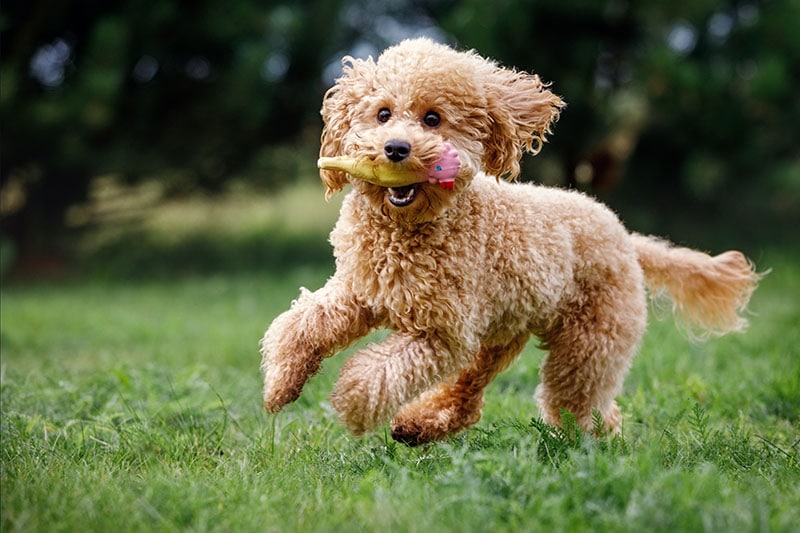
Training
These dogs live to please their owners, and training is easy due to their intelligence. Poodles love to participate in agility courses, obedience, and tracking. Keeping the activity fun and positive is essential, as your Poodle will be eager to please you. Patience and consistency are key, and you’ll find the Poodle is fun to train. Poodles are loyal to their humans, making them one of the easiest dogs to train. Remember to reward with treats for desired and acceptable behavior.
Health & Care
Poodles are overall healthy dogs, but with any breed, they are prone to certain medical conditions. Health conditions to watch for are hip dysplasia, Addison’s disease, epilepsy, hypothyroidism, and bloat. While some conditions can be genetic, maintaining proper nutrition for your Poodle will help keep these conditions at bay.
As for grooming, a Poodle’s coat is curly and coarse, and regular grooming is recommended. For puppies, it’s best to get them acclimated to regular grooming sessions early to make the process much smoother for both of you. Slicker brushes work well for Poodles, and you should aim for brushing once a day or at least every other day to keep the coat from matting. You can always opt for a professional groomer to take care of all your Poodle’s grooming needs, such as nail trims, baths, and ear cleaning.
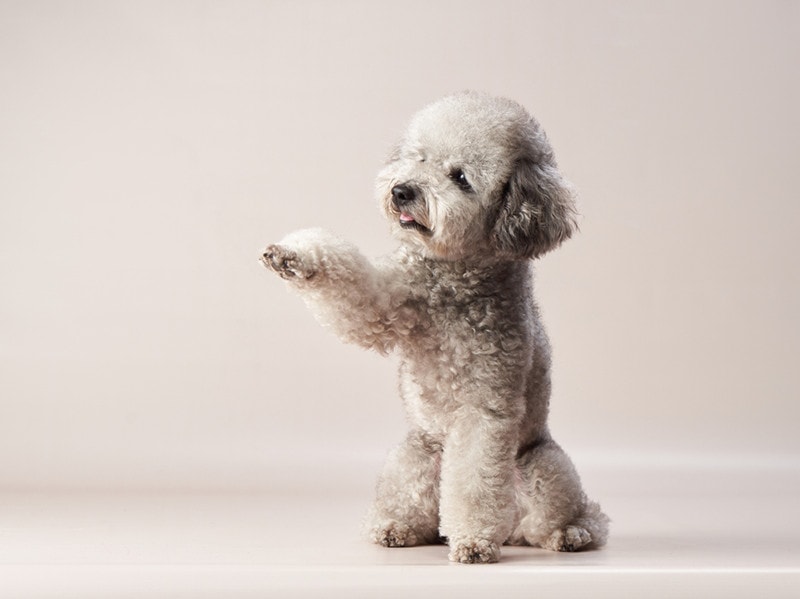
Nutrition
As with any breed, ensure you feed a high-quality dog food with quality protein as the first ingredient, followed by grains, oats, fruits, and veggies.
Suitable for:
Poodles are suitable for active families who love to be outdoors and have the time to exercise and play with their Poodle. They get along well with children and other pets, and their intelligence makes training easy. Life is fun with Poodles, and you can’t go wrong with owning one of the most intelligent dog breeds.
Which Breed Is Right for You?
The Bichon Frise and Poodle are similar in many ways. They both make excellent companions, love their humans, do well with other children and pets, are intelligent, and are eager to please you. Their coats are similar and require the same amount of grooming, and the recommended nutrition is the same.
If you want a small dog, the Bichon Frise may be a better option unless you want a toy or miniature Poodle. If you’re gone during the day, the Poodle may be the better option because the Bichon Frise may suffer from separation anxiety. In the end, you can’t go wrong with owning either breed.
- Related Read: Male vs. Female Bichon Frise: What Are the Differences?
Featured Image Credit: (L) Kellymmiller73, Shutterstock | (R) mullyadii, Shutterstock



